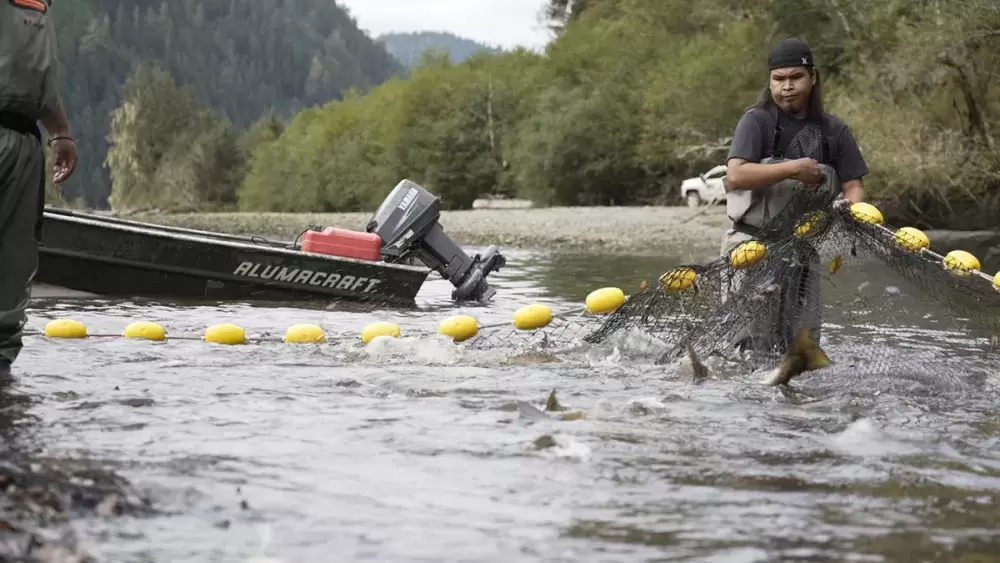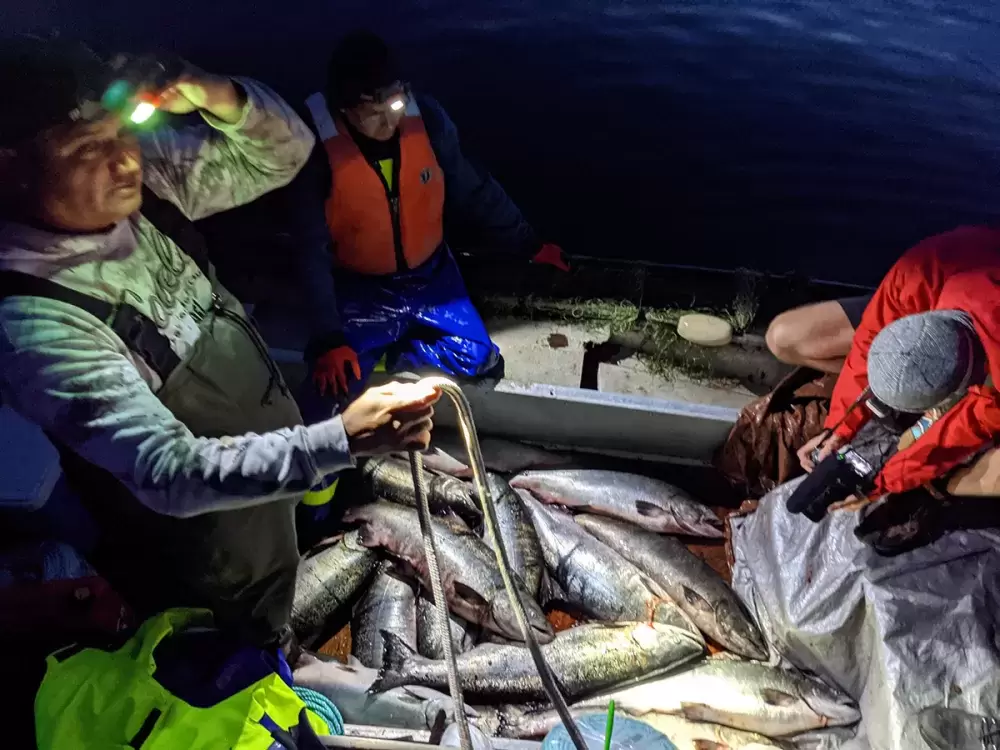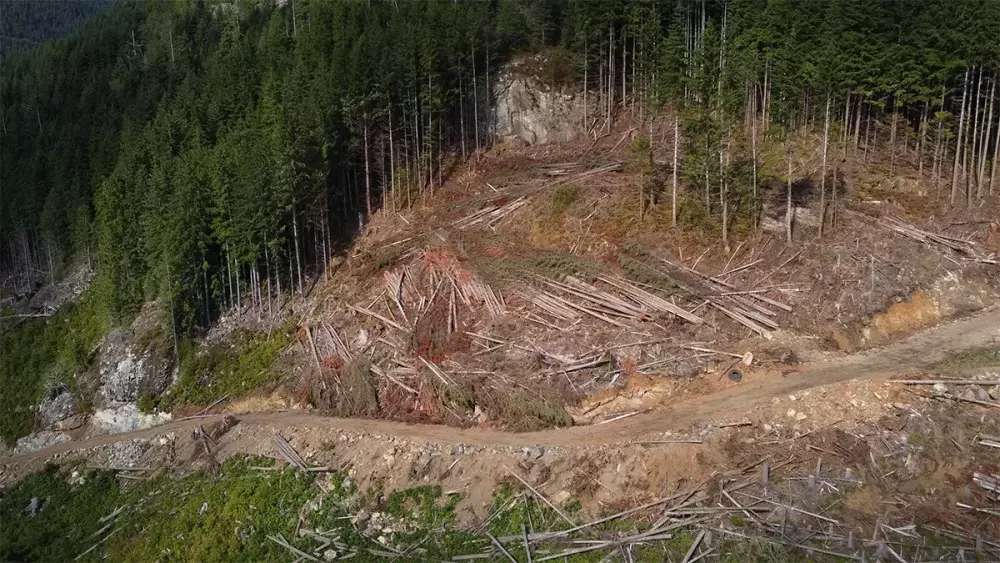A new film featuring Nuu-chah-nulth efforts to save salmon habitat on the west coast of Vancouver Island is made its premiere at Vancouver International Mountain Film Festival (VIMFF) on March 2 in Vancouver.
Filmed in Mowachaht/Muchalaht territories, Salmon Parks, an 11-minute documentary, was filmed in 2021 by director Carter Kirilenko.
The filmmakers say that wild salmon and old-growth forests have evolved together over time and without one, the other couldn’t survive.
“The loss of salmon populations would be disastrous not just for the people and wildlife that depend on them as a food source, but also for the many Indigenous and non-Indigenous communities whose livelihoods depend on salmon,” stated British Columbia’s chapter of the Canadian Parks and Wilderness Society.
The answer may lie in the creation of salmon sanctuaries called salmon parks, says the wilderness society.
In April 2019 Roger Dunlop, who was formerly an NTC fisheries biologist and now serves as Mowachaht/Muchalaht land and resources manager, spoke to Ha-Shilth-Sa about the concept of salmon parks during an interview about funding received for studies and watershed restoration.
In that interview he noted that watersheds in the territories of Mowachaht/Muchalaht, Ehattesaht/Chinehkint and Nuchatlaht were heavily damaged due to 60 years of industrial logging in the area, to the detriment of Chinook salmon survival.
“Salmon Parks follows an Indigenous-led plan to recover wild salmon and restore critical watersheds amidst the looming threat of industrial scale logging,” reads the VIMFF press release. “The film reveals the fascinating interconnectedness between wild salmon and ancient forests while aiming to help secure the establishment of Salmon Parks in Mowachaht/Muchalaht and Nuchatlaht traditional territory, as a matter of Nuu-chah-nulth law, with recognition by federal and provincial governments.”
It was a conversation with Nuchatlaht Chief Walter Michael that sparked the idea of salmon parks in Dunlop. Chief Michael wanted to protect his sockeye stream from logging. They began the work of mapping streams and reached out for support from surrounding communities, businesses and organizations in an effort to save wild salmon.
“Nothing is more important than restoring the health of our Ha-houlthee including the forests and the streams they nurture,” Chief Michael wrote in his support letter on behalf of Nuchatlaht.
CPAWS-BC is a non-profit conservation group who say their work is to safeguard large parks, protected areas and wildlife corridors. They contributed to the making of the Salmon Parks film, which they say tells the story of Indigenous leadership and hope.
“Salmon Parks is an impact-driven documentary exploring the ‘Salmon Parks’ restoration plan to protect and recover key streams and rivers and restore wild salmon within the Ha-houlthee of northern Nuu-chah-nulth nations and led by Uu-a-thluk, an aquatic resource management department of the Nuu-chah-nulth Tribal Council,” read the media release.



